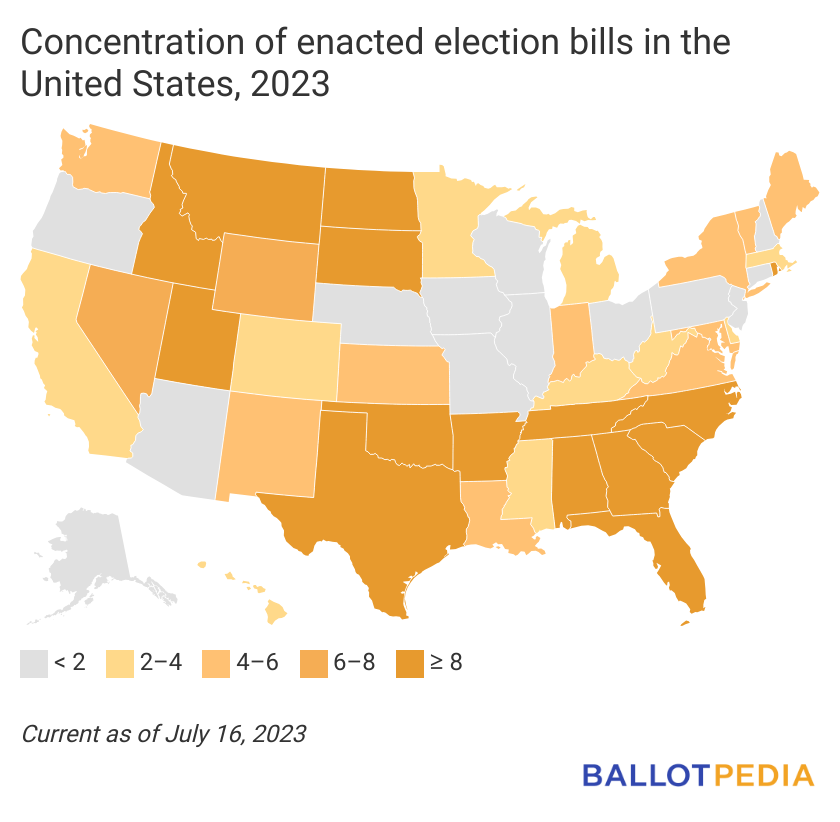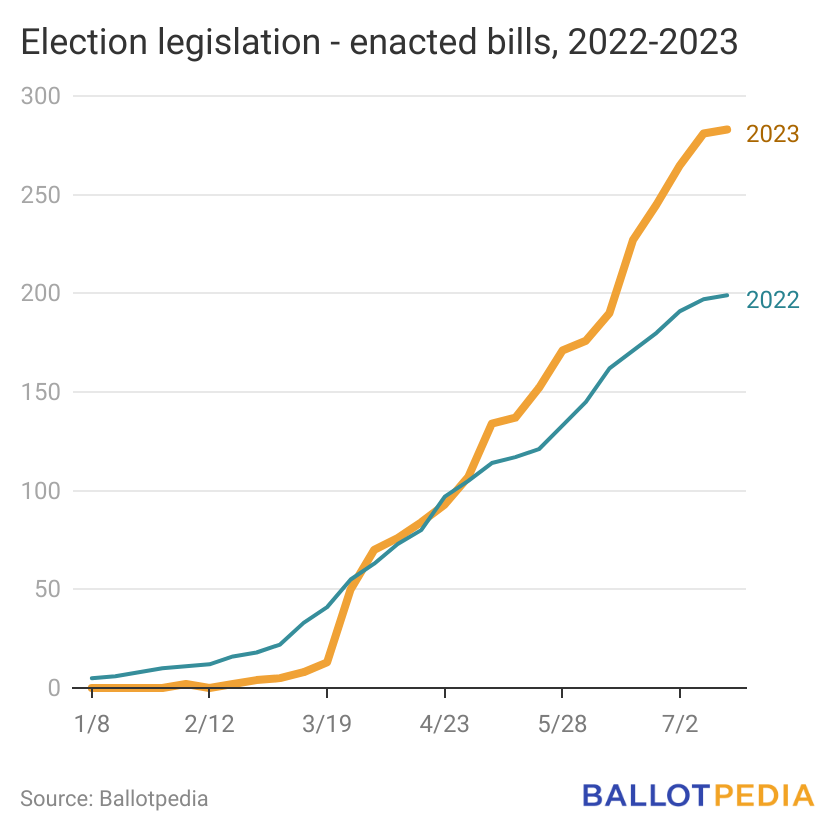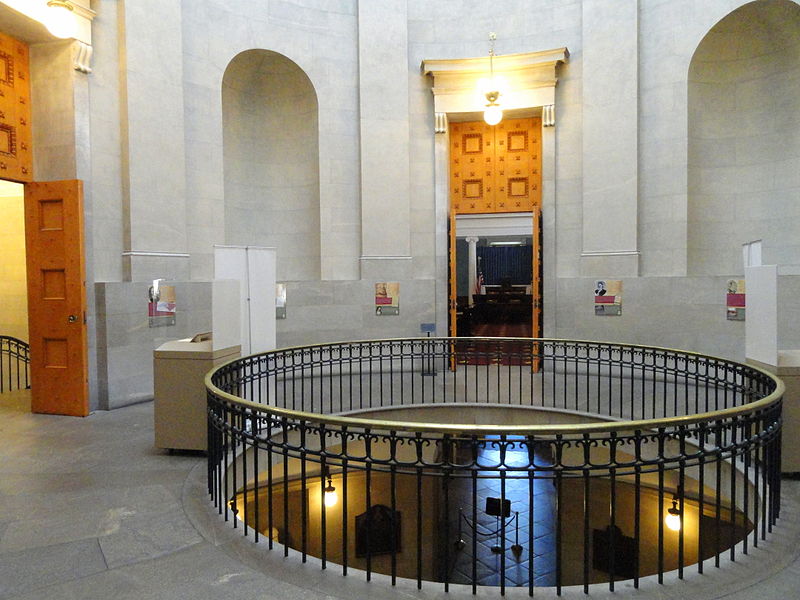As of July 16, members of the General Assembly of North Carolina, which includes the North Carolina House of Representatives and the North Carolina State Senate, have passed eight bills related to election administration since the beginning of the year. Of those eight bills, legislators passed one during the week of July 10-16. A bipartisan group of legislators sponsored the bill. The bill is:
- NC H57: Harmony/Love Valley Election Changes, Reps. Lindsey Prather (D), Jennifer Capps Balkcom (R), and William Ward (R).
- As amended, this bill:
- Establishes that regular municipal elections in the Town of Harmony will be held at the time of the general election in even-numbered years.
- Establishes that municipal elections in the Town of Love Valley will be held at the time of the general election in even-numbered years.
- Provides that these mayoral and town council elections will be nonpartisan and plurality based, and that elected officials will serve four-year terms with council members' terms being staggered.
- As amended, this bill:
Of the eight bills passed this year, eight have been enacted. Republicans sponsored six bills, while Democrats and a bipartisan group of legislators each sponsored one. Five of the eight bills are:
- NC H57: Harmony/Love Valley Election Changes, Reps. Lindsey Prather (D), Jennifer Capps Balkcom (R), and William Ward (R).
- As amended, this bill:
- Establishes that regular municipal elections in the Town of Harmony will be held at the time of the general election in even-numbered years.
- Establishes that municipal elections in the Town of Love Valley will be held at the time of the general election in even-numbered years.
- Provides that these mayoral and town council elections will be nonpartisan and plurality based, and that elected officials will serve four-year terms with council members' terms being staggered.
- As amended, this bill:
- NC H135: Even-Year Elections/City of Trinity, Reps. Brian Biggs (R) and Jonathan Hardister (R).
- As amended, this bill strikes outdated provisions regarding actions to take place in 2017. Additionally, the bill provides that regular municipal elections will take place at the time of the general election in even-numbered years.
- NC H88: Omnibus Local Elections, Reps. Brian Biggs (R), John Faircloth (R), and Jonathan Hardister (R).
- As amended, this bill:
- Specifies procedures and requirements for filling a partisan vacancy on the Guilford County Board of Education.
- Specifies that the Ashe County Board of Education will consist of five members, elected on a partisan basis for staggered four-year terms; and outlines nomination procedures and term dates.
- Specifies that the Cabarrus County Board of Education will be elected on a partisan basis and that board member terms begin on the first Monday in December after the election.
- Specifies that the Henderson County Board of Public Education will consist of seven members, elected on a partisan basis for staggered four-year terms.
- Outlines nomination procedures for board candidates and specifies implementation of staggered terms.
- Click the hyperlinked bill number above for more information.
- As amended, this bill:
- NC H27: Elect Thomasville City Bd. of Ed, Reps. Larry Potts (R) and Samuel Watford (R).
- As introduced, this bill establishes the Thomasville City Board of Education as an nonpartisan elected board composed of five members with staggered five-year terms.
- NC H229: Stagger/Extend Terms of Town Officers/Halifax, Rep. Michael Wray (D).
- As introduced, this bill amends the charter for the town of Halifax to establish four-year staggered terms for the mayor and commissioners, align municipal elections with the general election in odd-numbered years, and elect these positions on a nonpartisan plural basis in accordance with uniform municipal election procedures. The bill also provides for the upcoming election schedule.
From July 10-16, legislators passed one bill related to election administration nationally. As of July 16, Texas legislators have passed the most bills this year with 35, while Alaska, Missouri, New Hampshire, Pennsylvania, and Wisconsin legislators have passed the fewest bills with zero. The state with the most enacted bills is Texas with 33, while seven states have enacted none.


The General Assembly of North Carolina is scheduled to be in session from Jan. 11 to Aug. 31 this year. In 2022, North Carolina legislators passed one election-related bill in the state House. The bill was not enacted into law. North Carolina is a divided government, meaning neither party holds trifecta control.
Additional reading:



